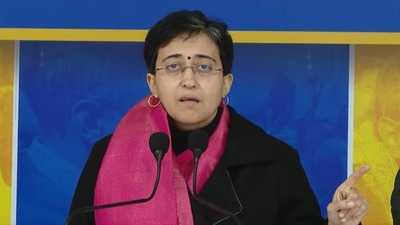India stands out as one of the most optimistic nations regarding education and socioeconomic mobility, according to the latest Educational Testing Service (ETS) Human Progress Report released on Tuesday. The survey, conducted across 18 countries, highlights a stark contrast between India’s positive outlook and the more subdued global sentiment on education.
According to TOI, the report revealed that while only 30% of global respondents expressed optimism about their country's current education system, a notable 70% of Indians held a positive view. Furthermore, 76% of Indian respondents were confident about future improvements, surpassing the global average of 64%.
Challenges in Access and Teacher Availability Persist
Despite the prevailing optimism, systemic challenges remain. Around 84% of Indians believe that accessing quality education is difficult, and 78% acknowledged that educational opportunities are skewed toward privileged groups. A significant 74% pointed to a shortage of teachers as a key bottleneck in educational progress.
When compared to the global average, more Indians identified the lack of high-quality educational programmes (34% vs 22%) and institutions (29% vs 20%) as major barriers. Notably, India emerged as one of the most supportive nations toward non-profit organisations, with 26% agreeing that these entities can help improve access to high-quality education, compared to 19% globally.
Socioeconomic Mobility and Career Opportunities
India’s confidence extends beyond education to career advancement. Nearly 69% of Indians believe they have opportunities for upward mobility, compared to a global average of 55%. Looking ahead to 2035, 72% of Indian respondents anticipate further improvements, significantly higher than the 62% global average.
However, economic barriers persist. More Indians than their global counterparts cited job shortages (40% vs 34%), expensive education (33% vs 28%), and a lack of knowledge about advancement opportunities (29% vs 22%) as key hurdles. Notably, only 19% of Indians felt that a lack of connections hindered their opportunities, compared to the global average of 28%.
Focus on Lifelong Learning and AI Integration
India’s workforce is rapidly adapting to changing skill requirements. About 91% of Indian respondents believe that lifelong learning will become a career standard, significantly higher than the global norm. Moreover, 88% anticipate that credentials and certifications will gain more importance than university degrees in the coming years, compared to 75% worldwide.
The influence of artificial intelligence (AI) on the job market is a key concern. An overwhelming 88% of Indians recognize its transformative impact on essential skills. Notably, many view AI as a complementary tool rather than a threat, with widespread belief that those who integrate AI into their work will have a competitive edge.
Expert Insights and Policy Initiatives
Amit Sevak, CEO of ETS, commented, “India has made impressive strides in foundational learning, but disparities persist between urban and rural areas and across states. One of the biggest factors influencing student outcomes is teacher quality.”
The findings underscore the role of non-profits and government partnerships in addressing existing gaps. Initiatives aimed at improving skill assessments, enhancing teacher quality, and integrating AI in learning are positioning India to navigate these challenges effectively.
India’s strong optimism and commitment to skill development signal a promising path forward, even as the nation grapples with significant challenges in accessibility and infrastructure.
Budget with ET
Tax calculator
Challenges in Access and Teacher Availability Persist
Despite the prevailing optimism, systemic challenges remain. Around 84% of Indians believe that accessing quality education is difficult, and 78% acknowledged that educational opportunities are skewed toward privileged groups. A significant 74% pointed to a shortage of teachers as a key bottleneck in educational progress.
When compared to the global average, more Indians identified the lack of high-quality educational programmes (34% vs 22%) and institutions (29% vs 20%) as major barriers. Notably, India emerged as one of the most supportive nations toward non-profit organisations, with 26% agreeing that these entities can help improve access to high-quality education, compared to 19% globally.
Socioeconomic Mobility and Career Opportunities
India’s confidence extends beyond education to career advancement. Nearly 69% of Indians believe they have opportunities for upward mobility, compared to a global average of 55%. Looking ahead to 2035, 72% of Indian respondents anticipate further improvements, significantly higher than the 62% global average.
However, economic barriers persist. More Indians than their global counterparts cited job shortages (40% vs 34%), expensive education (33% vs 28%), and a lack of knowledge about advancement opportunities (29% vs 22%) as key hurdles. Notably, only 19% of Indians felt that a lack of connections hindered their opportunities, compared to the global average of 28%.
Focus on Lifelong Learning and AI Integration
India’s workforce is rapidly adapting to changing skill requirements. About 91% of Indian respondents believe that lifelong learning will become a career standard, significantly higher than the global norm. Moreover, 88% anticipate that credentials and certifications will gain more importance than university degrees in the coming years, compared to 75% worldwide.
The influence of artificial intelligence (AI) on the job market is a key concern. An overwhelming 88% of Indians recognize its transformative impact on essential skills. Notably, many view AI as a complementary tool rather than a threat, with widespread belief that those who integrate AI into their work will have a competitive edge.
Expert Insights and Policy Initiatives
Amit Sevak, CEO of ETS, commented, “India has made impressive strides in foundational learning, but disparities persist between urban and rural areas and across states. One of the biggest factors influencing student outcomes is teacher quality.”
The findings underscore the role of non-profits and government partnerships in addressing existing gaps. Initiatives aimed at improving skill assessments, enhancing teacher quality, and integrating AI in learning are positioning India to navigate these challenges effectively.
India’s strong optimism and commitment to skill development signal a promising path forward, even as the nation grapples with significant challenges in accessibility and infrastructure.








